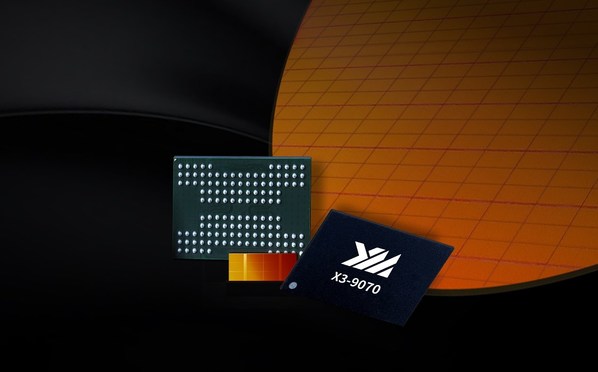
Yangtze Memory Technologies Corp (YMTC), China's largest maker of 3D NAND memory that used to make flash for some of the best SSDs, recently secured a much-needed multi-billion dollar investment. This money comes after the company had to spend $7 billion in a year to overcome U.S. sanctions against the Chinese semiconductor sector and YMTC's inclusion on the Department of Commerce's Entity List.
Last year the company received a ¥50 billion ($7 billion) capital boost from its shareholders, which included contributions from the government-backed China Integrated Circuit Industry Investment Fund (the so-called Big Fund). But after the U.S. imposed restrictions on selling specific chipmaking tools to all Chinese companies in October and added YMTC to its blacklist, the company began bleeding financially — which is why it needed additional money from its investors. This new round of funding exceeded the company's expectations, according to a report from the Financial Times.
YMTC's cash reserves were substantially depleted as it grappled with the costs associated with repairing its equipment and procuring tools from third parties (where possible). YMTC has been actively seeking to reduce its reliance on American chipmaking by turning to alternative suppliers from Europe, Japan, and South Korea. Just like other Chinese companies, YMTC is attempting to increase its reliance on Chinese suppliers — namely Advanced Micro-Fabrication Equipment (AMEC) and Naura.
"If Chinese companies have equipment that can be used, [YMTC] will use it," an investor told FT. "If not, it will see if countries other than the U.S. can sell to it. If that does not work, YMTC will develop it together with the supplier."
AMEC and Naura can produce quite competitive etching equipment, but it is unclear whether they can produce it in large volumes. To keep developing production nodes that are more advanced than the company's leading-edge 232-layer 3D NAND, YMTC will need wafer fab equipment that is more advanced than the tools currently made by AMEC and Naura. According to the FT report, these tools will have to be co-developed with YMTC.
It is unclear where YMTC can get advanced lithography tools from, given the existing sanctions against Chinese chip sector by Japan and the Netherlands. The best lithography tools that China's industry is about to deliver later this year can make chips on a 28nm-class node, but that is not enough for advanced logic or 3D NAND.
YMTC chairman Chen Nanxiang, who was recently appointed as the head of the China Semiconductor Industry Association, has called for solidarity and cooperation within the industry. This call to unity is a response to what Chen describes as an 'unprecedented upheaval' in the global supply chain, a sentiment that reflects the Chinese industrial perspective on both the current geopolitical tech tensions in general, as well as the specific sanctions against the Chinese semiconductor industry.







